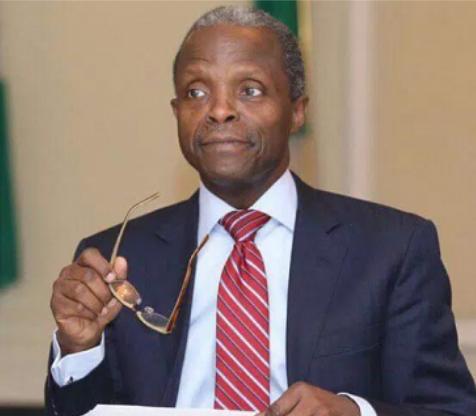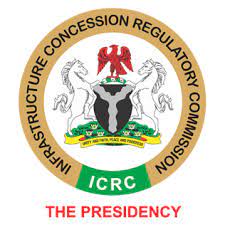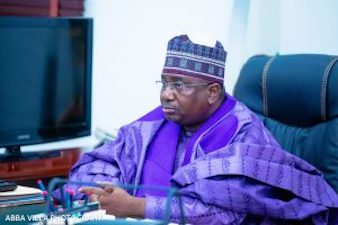Economy
Nigeria’s Leather Industry Capable of Generating $1bn by 2025 – Osinbajo

Vice President Yemi Osinbajo says there is a projection that Nigeria’s leather industry has the potential to generate over 1 billion dollars by 2025.
Osinbajo disclosed this at the formal inauguration and sensitisation workshop on the National Leather and Leather Products Policy Implementation Plan yesterday in Abuja.
The vice president said leather value chain had created wealth and appreciable job opportunities in Nigeria.
“Nigeria is one of the highest producers of leather and finished leather products in Africa; a study carried out by the Nigerian Economic Summit Group (NESG) projected that the Nigerian leather industry has the potential to generate over 1 billion dollars by 2025.
“The leather value chain is extensive; it includes animal husbandry, tanneries, finished leather products and leather products marketing.
“The leather and leather products industry currently employs over 750,000 workers with about 500,000 workers in the finished leather goods sector.
“About eleven leather exporting companies have been active at the upstream end of the leather value chain; together, these companies generate about 8000 jobs.’’
He said that the export of leather had grown steadily reaching a peak of 117 million dollars in 2018 but fell in 2020 largely due to the COVID-19 pandemic.
Osinbajo said that Nigeria’s leather products and value chain had immense potential and attracted huge international patronage.
“To date, however, exports are in the order of 272 million dollars; today, Nigeria’s semi-finished and finished leather have their highest patronage in Italy, Spain, India, South Asia and China.
“Shoes, belts, bags and folders are largely traded in West Africa and many parts of Africa.
“Anecdotal evidence suggests that the famous Aba shoe cluster in Abia, informally exports almost a million pairs of shoes weekly mostly to destinations within Africa.
“ The industry is huge and its potential can only be imagined; so, there is no question that properly organised, the leather and leather products industry could become one of the major items in Nigeria’s export basket.”
According to him, there is clearly an enormous potential for greater job opportunities and much higher export proceeds.
He said that the NESG projection also indicated that the Nigerian leather industry had the potential to increase its earnings by 70 per cent by 2025.
“This explains why the launch of the National Leather and Leather Products Policy Implementation Plan is such an exciting development.
“We now have a real opportunity to address the specific challenges and shortcomings of the leather sector with pragmatic strategies to permanently resolve these issues for optimal productivity.
“In particular, there is now a clear line of sight to our emergence as a major hub for the manufacture of leather goods with the refocusing of the leather sector to value addition from its previous focus on exporting semi-processed leather.
“A major part of that effort is improving access to credit for leather products manufacturers.’’
He said that the plan provided an opportunity to develop a credit guarantee scheme along the lines of the successful agricultural credit guarantee scheme.
Osinbajo said that more intentional infrastructure development had become possible.
“Our Special Economic Zones (SEZ) project already projected leather products manufacturing as a major focus, synergy and collaboration with Nigeria Export Processing Zones Authority (NEPZA) was all required at present.
“By optimising the value chain, the sector will provide employment, improve our foreign exchange earnings and boost growth.
“Consequently, it is evident that in terms of what we have set out to do through the policy and the implementation plan, the stakes are very high.
“The plan covers eight thematic areas including intellectual property rights, governance, E-leather, environmental and social best practices, marketing, funding, critical infrastructure and research and development.
“The plan is as all-encompassing as it is detailed; relevant MDAs, NGOs and the organised private sector are assigned specific responsibilities for the various objectives, and strategies of the plan.”
Earlier in a keynote address, Dr Ogbonnaya Onu, the Minister of Science and Technology, said the plan would help the effective and efficient exploitation of Nigeria’s natural resources.
Onu said that the plan would make the country self-reliant, enhance earning of foreign exchange as well as creating jobs and wealth. (NAN)
Economy
NGX Closes Positive, Investors Gain N74bn

To end the week, the stock market rebounded from previous losses, gaining N74 billion.
Investor interest in MTN Nigeria, FBN Holdings, Guaranty Trust Holding Company (GTCO) and other equities lifted the market.
Notably, the market capitalisation opened at N56.014 trillion, adding N74 billion or 0.
13 per cent to close at N56.088 trillion.The All-Share Index also advanced by 0.
13 per cent, or 129.44 points, closing at 97,606.63, compared to 97,477.19 recorded on Thursday.As a result, the Year-To-Date (YTD) return increased by 30.54 per cent.
The market breadth closed positive, with 31 gainers and 19 losers on the floor of the Exchange.
On the gainers’ chart, Consolidated Hallmark Plc and Sterling Nigeria led by 9.
45 per cent each to close at N1.39 and N4.98 per share respectively.Mecure followed by 9.19 per cent to close at N10.10, Regency Alliance Insurance gained 9.09 per cent to close at 72k, while Fidson Healthcare Plc increased by 8.24 per cent to close at N15.10 per share.
Conversely, Deap Capital Management and Trust led the losers’ chart by 9.93 per cent to close at N1.36, NEM Insurance trailed by 9.71 per cent to close at N7.90 per share.
Daar Communications also lost 9.52 per cent to close at 57k, Tantalizers shed 9.09 per cent to close at 60k, while Dangote Sugar declined by 3.31 per cent to close at N31 per share.
Analysis of the market activities showed trade turnover settled higher relative to the previous session, with the value of transactions up by 20.33 per cent.
A total of 304.43 million shares valued at N5.60 billion were exchanged in 6,950 deals, compared with 277.75 million shares valued at N4.65 billon in 7,091 deals traded in the previous session.
Meanwhile, Access Corporation led the activity chart in volume and value with 68.26 million shares valued at N1.34 billon.(NAN)
Economy
NES Decries Rising Inflation, Unemployment, Poverty, Others

By David Torough, Abuja
The Nigerian Economic Society (NES) has decried Nigeria’s socioeconomic dilemmas, including; low personal incomes, dysfunctional education, healthcare systems, unemployment, rising inflation, poverty, amidst other critical issues.
This was part of the communique at the end of the association’s 65th annual conference held recently in Abuja with the theme: Socioeconomic Development in Nigeria: Imperatives, Implications, and Impacts.
It emphasised that the factors greatly contribute to insecurity, food scarcity, energy poverty, widening social inequality as macroeconomic instability and called on relevant stakeholders to urgently address the challenges.
President Bola Tinubu who was represented by the Vice President, Kashim Shettima through
Dr. Tope Fasua, underscored the
pivotal role of economists in shaping national development.
Tinubu reiterated the importance of their role to make the citizens feel integral and empowered, knowing that their contributions were crucial to the country’s development.
He urged them to approach the economy optimistically, stressing that their work was crucial, and that improvement was
always possible.
In his remarks, Minister of Budget and National Planning, Atiku Bagudu underscored the importance of socioeconomic resilience amidst global economic challenges.
He acknowledged the relevance of the conference theme, stating its timeliness in addressing Nigeria’s development needs.
On his part, Minister of Finance and Coordinating Minister of the Economy, Olawale Edun who delivered the keynote address on “Leveraging Economic Reforms to Leapfrog Nigeria’s Socioeconomic Development,” underscored the potential benefits of these reforms and stressed the need to better utilise Nigeria’s human and natural resources to spur socio-economic development.
He predicted that while structural reforms might cause short-term economic shocks, they would stabilise the economy in the long run, bringing hope for a brighter future.
In his presentation, the NES President, Professor Adeola Adenikinju who presented “Nigeria’s Socioeconomic Challenges: Lessons from the Structural Adjustment Programmes,” recommended:
Instituting an economic governance structure for the country, designating
some Ministries as economic ministries that qualified economists and allied professionals
must staff, adopting macroeconomic models to analyse the impacts of policies and assess
alternative scenarios.
Adenikinju also recommended; implementing export-led growth strategies by promoting value-
added exports and incentives for export-oriented industries and infrastructure, prioritising agro-allied industries to boost socioeconomic outcomes, implementing targeted subsidies or social safety nets to cushion vulnerable populations against the immediate impacts of reforms, amongst others.
The 65th NES Conference provided significant insights into Nigeria’s socioeconomic
development challenges and proposed actionable recommendations.
Participants emphasised the need for visionary leadership, policy synergy, and a commitment to long-term economic transformation to ensure sustainable development for Nigeria.
Economy
Infrastructure Devt.: ICRC to Issue Approval Certificates Within 7 Days – DG

By Tony Obiechina, Abuja
The Infrastructure Concession Regulatory Commission (ICRC) says it will henceforth issue Outline Business Case (OBC) Certificate of Compliance and the Full Business Case (FBC) Certificate of Compliance within seven days.This follows the charge by President Bola Ahmed Tinubu to the Director General of the Commission, Dr Jobson Oseodion Ewalefoh “to accelerate investment in National Infrastructure through innovative mobilization of private-sector funding”.
President Tinubu also charged him to work assiduously to boost infrastructure development in Nigeria as part of the renewed hope agenda of the current administration.In view of the above, Dr Ewalefoh-led management team of the ICRC has streamlined the approval processes of the commission to issue its certificates of compliance within seven days. This will accelerate the turnaround time for approvals by the Commission.“In line with the charge of His Excellency, President Bola Ahmed Tinubu, GCFR, and following his Renewed Hope Agenda, we have streamlined and updated our approval processes to issue either of the Outline Business Case Certificate of Compliance (OBC) and the Full Business Case Certificate of Compliance (FBC) to Ministries, Departments and Agencies (MDAs) that meet the requirements within seven days.“This is part of efforts by the current administration to accelerate infrastructure development, bridge the infrastructure gaps and stimulate the economy through investment of private sector funds in Public Private Partnership endeavours.“By streamlining our processes, the Commission is in no way foregoing any of its stringent approval steps or key requirements, therefore, only business cases that are viable, bankable, offer value for money and meet all other requirements will be approved.“The ICRC cannot do it alone, therefore I implore all chief executives of MDAs to match our momentum and align with this charge of Mr. President to accelerate Infrastructure development and ensure that PPP projects are not stalled at any point but delivered within record time.“The Commission is ready to partner and collaborate with all MDAs to actualize this,” he said.In a statement by Ifeanyi NwokoActing Head, Media and Publicity on Monday the ICRC DG in August rolled out a six-point policy direction which among others, focused on accelerating PPP processes, boosting inter-agency collaboration and ensuring innovative financing.The ICRC was established to regulate Public Private Partnership (PPP) endeavours of the Federal government aimed at addressing Nigeria’s physical infrastructure deficit which hampers economic development.





















